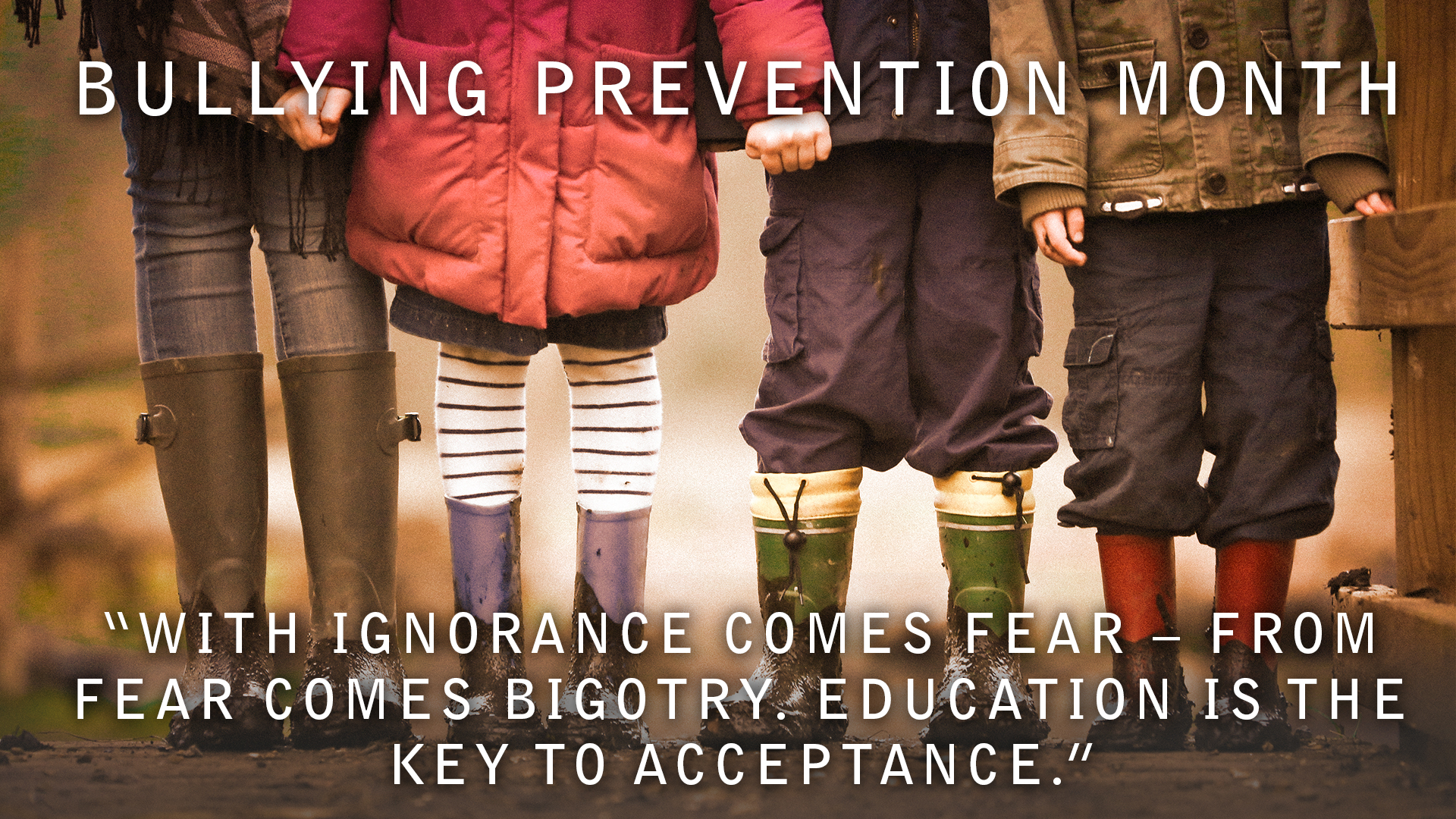- Home
- About Us
- Housing
- Resources
- Contact Us
-
-
-
Address: 223 S. Winnebago Street Rockford, IL 61102
Phone: 815-489-8500
-
-
- Updates
-

In 2006, PACER The National Bullying Prevention Center designated October as National Bullying Prevention Month. Throughout the month of October, everyone is encouraged to join the nationwide conversation on bullying prevention and support.
Bullying as defined by Illinois anti-bullying laws and regulations is “Any severe or pervasive physical or verbal act or conduct, including communications made in writing or electronically, directed toward a student or students that has or can be reasonably predicted to have the effect of one or more of the following:

Although bullying has the potential to have long term effects on those who endure, engage and witness it, many adults seem to minimize those long term effects by stating that bullying is a “Right of passage” everyone must go through in order to “toughen” up. Statements like this are normalizing behavior that should not be tolerated in any case and have the potential to make young people believe that everything that they are doing or experiencing is normal and they shouldn’t do anything about it.
Teachers and guardians should guide students into knowing how to properly respond if they are being bullied and what to do if they are witnessing it. Although many people feel the right thing to say to someone that is being bullied is to “stand up for themselves”, it’s shown that “Actions aimed at changing the behavior of the bullying youth (fighting, getting back at them, telling them to stop, etc.) were rated as more likely to make things worse” (Davis & Nixon, 2010). Instead, it is encouraged that schools implement programs geared towards students on bullying prevention and peer acceptance. Peer involvement helps “More than half of bullying situations (57%) stop when a peer intervenes on behalf of the student being bullied” (PACER Bullying Statistics).
Student involvement and awareness of bullying prevention can be encouraged by hosting school events such as the “Bullying prevention walk” organized by PACER.
Sources: